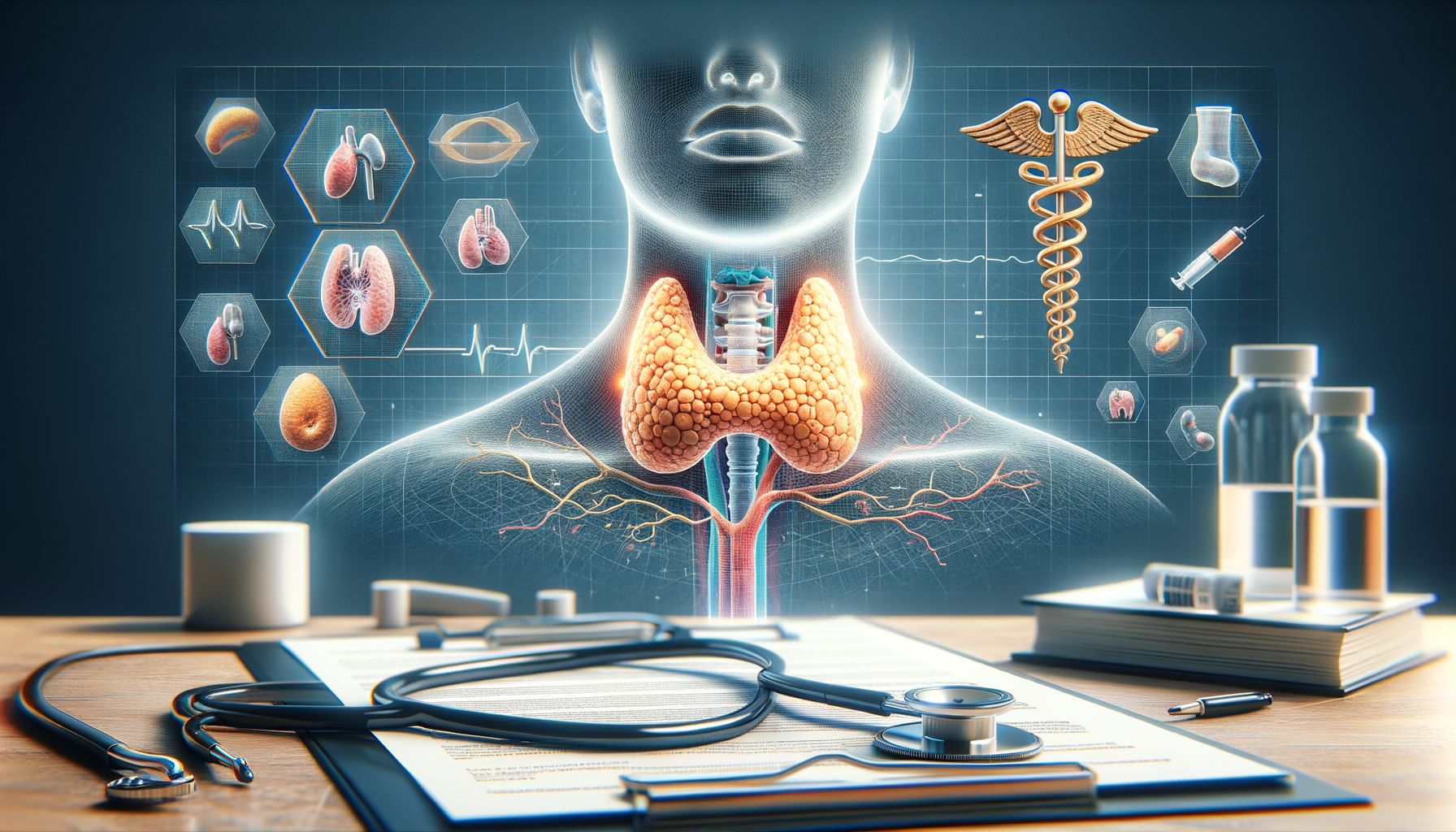Introduction to Thyroid Health
The thyroid gland, a small butterfly-shaped organ located at the base of your neck, plays a crucial role in regulating your body’s metabolism. It produces hormones that influence almost every metabolic process in your body. When the thyroid becomes overactive (hyperthyroidism) or underactive (hypothyroidism), it can lead to a range of health issues. Understanding the treatment options available is vital for maintaining optimal health and preventing complications.
Medications for Thyroid Disorders
Medications are often the first line of treatment for thyroid disorders. For hypothyroidism, synthetic thyroid hormones like levothyroxine are commonly prescribed. These medications work by replacing the deficient thyroid hormones, helping to restore normal metabolic function. Regular monitoring and dosage adjustments are crucial to ensure effectiveness and minimize side effects.
In the case of hyperthyroidism, antithyroid medications such as methimazole or propylthiouracil are used to reduce the production of thyroid hormones. These medications are effective in controlling symptoms and can sometimes lead to remission. However, they require careful monitoring to avoid potential side effects like liver damage or a decrease in white blood cells.
Benefits of medication treatment include:
- Non-invasive and easily administered
- Effective in managing symptoms
- Potential for long-term control
While medications are a cornerstone of thyroid treatment, they may not be suitable for everyone, and alternative options might be necessary.
Radioactive Iodine Therapy
Radioactive iodine therapy is a common treatment for hyperthyroidism and certain types of thyroid cancer. This treatment involves ingesting a radioactive iodine capsule or liquid, which is then absorbed by the thyroid gland. The radiation works to destroy overactive thyroid cells, reducing hormone production.
This therapy is highly effective and often results in a permanent cure for hyperthyroidism. However, it may lead to hypothyroidism, requiring lifelong hormone replacement therapy. Patients undergoing this treatment need to follow specific safety guidelines to minimize radiation exposure to others.
Key considerations include:
- Non-surgical option with high success rates
- Potential for permanent resolution of hyperthyroidism
- Requires careful post-treatment monitoring
Radioactive iodine therapy is a well-regarded option for many patients, but it is not suitable for pregnant women or those planning to become pregnant.
Surgical Interventions
In some cases, surgery may be necessary to treat thyroid disorders. Thyroidectomy, the surgical removal of all or part of the thyroid gland, is considered when other treatments are ineffective or not viable. Surgery is often recommended for large goiters, thyroid cancer, or when there is a suspicion of cancer.
Surgical intervention offers the advantage of a definitive solution, particularly in cases of cancer. However, it carries inherent risks such as damage to the vocal cords or parathyroid glands, which regulate calcium levels in the body. Post-surgery, patients may require lifelong thyroid hormone replacement therapy.
Benefits and risks include:
- Definitive treatment for certain conditions
- Potential for immediate symptom relief
- Involves surgical risks and recovery time
Surgery is a significant step and is typically considered when other treatments are not suitable or have failed.
Lifestyle and Dietary Considerations
While medical treatments are crucial, lifestyle and dietary changes can support thyroid health and improve overall well-being. A balanced diet rich in iodine, selenium, and zinc is essential for thyroid function. Foods like fish, eggs, nuts, and dairy can provide these nutrients.
Regular exercise and stress management techniques such as yoga or meditation can also help manage symptoms and improve quality of life. For individuals with hypothyroidism, maintaining a healthy weight through diet and exercise is important, as metabolism may be slower.
Key lifestyle tips include:
- Incorporating nutrient-rich foods into your diet
- Engaging in regular physical activity
- Practicing stress-reduction techniques
While lifestyle changes alone cannot cure thyroid disorders, they can complement medical treatments and enhance overall health.
Conclusion: Navigating Thyroid Treatment Options
Understanding the various treatment options for thyroid disorders empowers patients to make informed decisions about their health. Whether through medication, radioactive iodine therapy, surgery, or lifestyle changes, each approach offers unique benefits and considerations. Working closely with a healthcare provider ensures that treatment is tailored to individual needs, ultimately supporting a healthier and more balanced life.




Leave a Reply